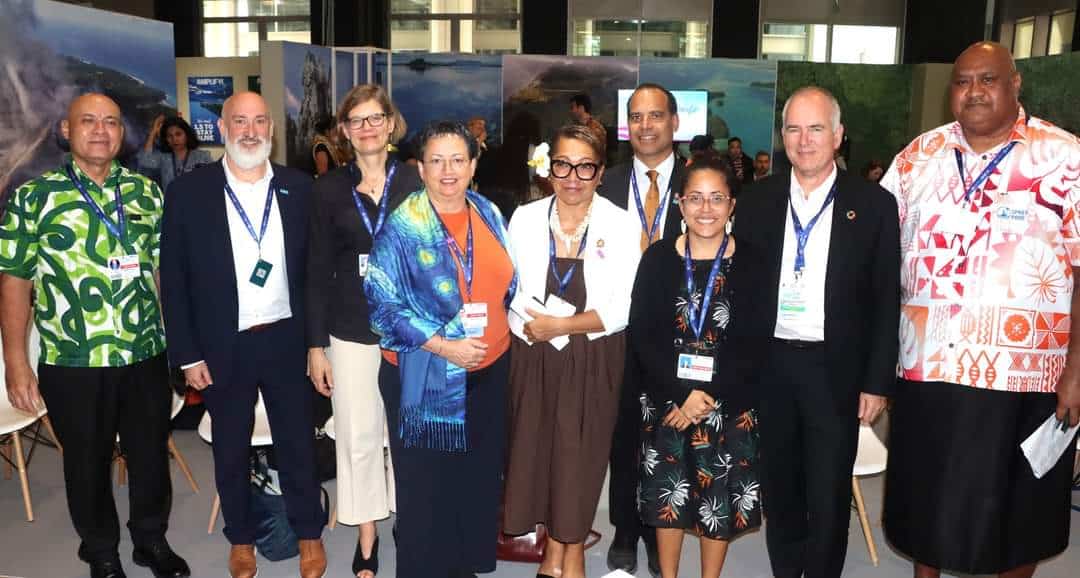As COP28 approaches its closing plenary next week, key stakeholders from the Pacific region weigh in on their priorities and expectations for the rest of the conference.
Director General of SPREP, Sefanaia Nawadra said the single biggest issue for the Pacific still remains 1.5 to stay alive.
“This is the bottom line. We need to use the opportunities presented at this COP, particularly the Stocktake, to assess the progress made and what adjustments are needed to reach 1.5.
“We must maintain the red line we’ve set and emphasise the role of transitioning to non-fossil fuels to achieve this goal. A significant aspect we’re addressing is the whole consideration of renewable energy, including the management of waste generated by the changing of panels and batteries,” said Nawadra.
Forum Secretary General, Henry Puna said the Pacific priority will be the 1.5 threshold.
“The scientific evidence supports its importance to all climate change issues. The just transition initiative from the Port Vila declaration offers a practical approach for fossil fuel exporting and producing countries. It acknowledges the need to consider each country’s unique circumstances to avoid imposing an impossible burden.
“While advocating for 1.5, Pacific Island countries must also demonstrate leadership in transitioning to renewables, recognising the responsibilities that accompany this call. The ongoing discussions, particularly on energy day, are crucial,” said Puna.
Pacific Youth representative, Metoyer Lohia from Papua New Guinea said their core priority is keeping 1.5 alive, aligned with the Port Vila call.
“I emphasise a fair, equitable, and just transition that includes the active involvement of youth.
“I hope to see a focus on this in the forthcoming days. It’s essential that the discussions and negotiations reflect the need for inclusivity in addressing climate challenges. As Pacific youth, we are committed to contributing to and shaping a sustainable future,” she said.
In the midst of negotiations and deliberations, it highlighted the unwavering commitment of Pacific leaders and youth to address climate change, keeping the 1.5-degree target at the forefront of discussions and advocating for responsible and inclusive transitions to renewable energy.
